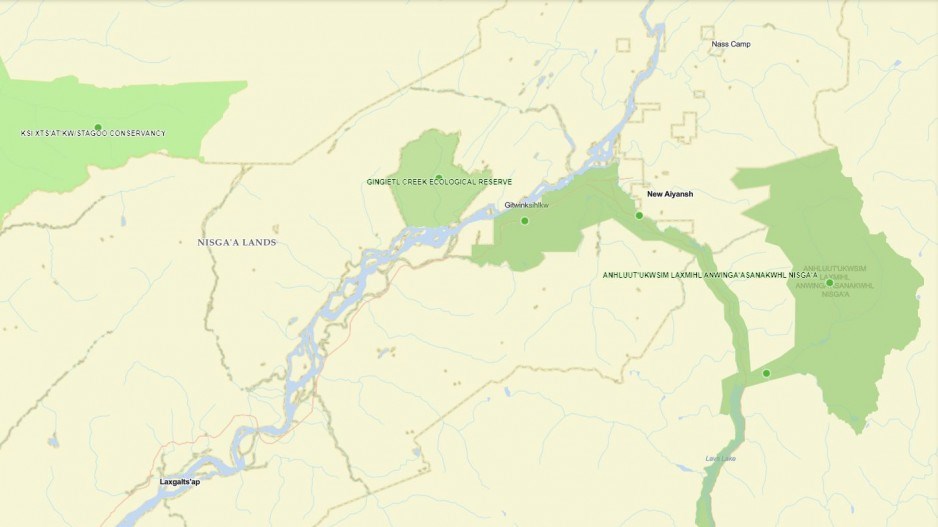The Nisga’a Nation – Canada’s first modern treaty nation – is going to court to evict a group that calls itself the “Raven Claw Outlaws” from an area to which the Nisga’a have treaty rights to hunt.
In a statement of claim filed last week in BC Supreme Court, the Nisga’a Lisims Government says Wilhelm Marsden, a member of the Gitanyow First Nation, and others have occupied an area in the Nass Wilderness Area to which the Nisga’a have hunting rights. The group has been logging, farming, and growing cannabis without a licence, the Nisga'a claim.
“The occupants’ activities at the site include: damaging forest resources by clear-cutting trees; erecting permanent cabins and structures; marketing accommodations; operating a farm; raising and selling livestock near waterways (now at risk of contamination),” the Nisga’a Lisims Government says in a press release.
“They also appear to be growing and selling cannabis without a license. They have stated they do not recognize provincial or federal laws, and we understand that they have not applied for or received approval from any government to use this land.”
The Nisga’a signed a modern treaty that came into force in 2000. It specified the nation’s rights and title, with the nation gaining outright title to and governance over certain lands within their traditional claimed territory, as well as other treaty rights -- hunting and fishing, for example --in non-title areas. This includes the Nass Wildlife Area that the Nisga’a say the Raven Claw Outlaws have been occupying.
Members of the Gitanyow may also be able to claim the area as traditional territory, but unlike the Nisga’a, their claims have not been legally confirmed through the courts or by treaty.
“Unlike the Gitanyow, Nisg̱a’a Lisims Government has constitutionally protected treaty rights in the Nass Wildlife Area, including at the site, as set out under our treaty,” a Nisga’a government spokesperson said in a statement to BIV News.
“The actions of the occupants are limiting Nisg̱a'a citizens’ ability to exercise their treaty rights to safely harvest wildlife in the area,” the Nisga’a government says.
“Hunting in the vicinity of an occupied site would not only be dangerous but is also against Nisg̱a’a laws. The occupants are also having a negative impact on the environment by clear-cutting forests, not complying with environmental and cannabis legislation, polluting the grounds with farm waste and potentially contaminating nearby waterways.”
In its application to the BC Supreme Court, the Nisga’a are seeking injunctions restraining Marsden and others from “conducting any ongoing or future activities at the site, or otherwise interfering with Nisg̱a’a citizens’ treaty rights to harvest wildlife at the site, until further order of this court.”
“Nisg̱a’a Lisims Government is taking this action to protect our citizens’ rights, our traditional lands and the larger Nass Wildlife Area,” said Nisg̱a’a Lisims Government President Eva Clayton.
“The occupiers are causing real harm to the environment and cannot be allowed to continue to undertake their unlawful activities at the site. The Nisg̱a’a Treaty provides our citizens with the right to hunt and harvest wildlife to provide for their families, as they always have. We will do everything we can to protect these hard-won rights.”



